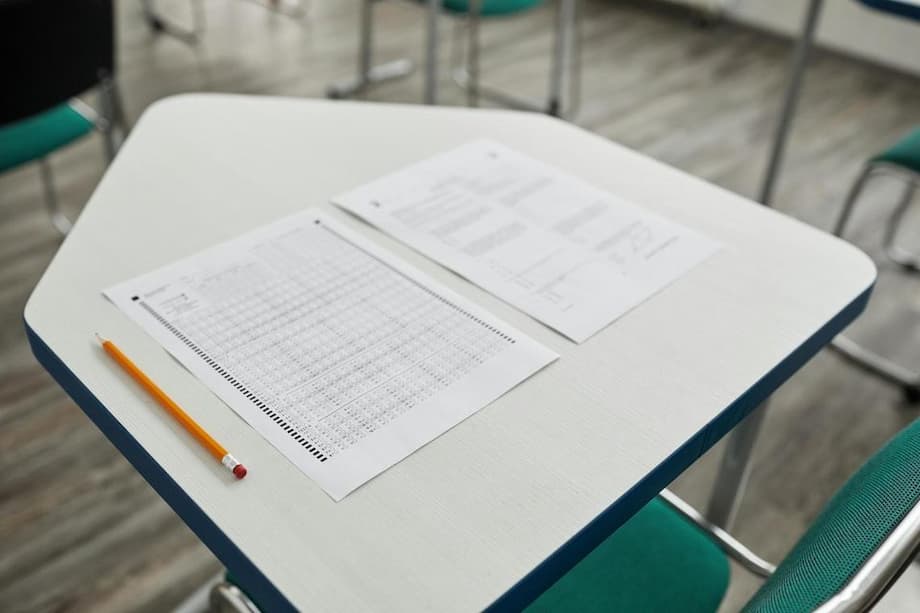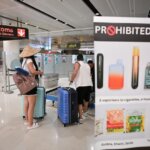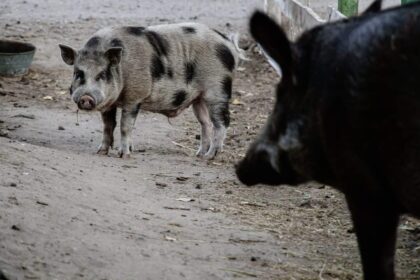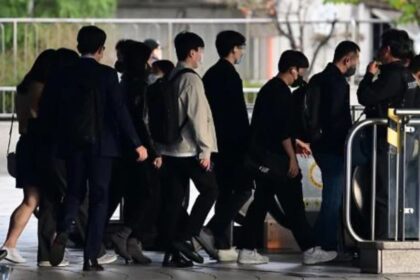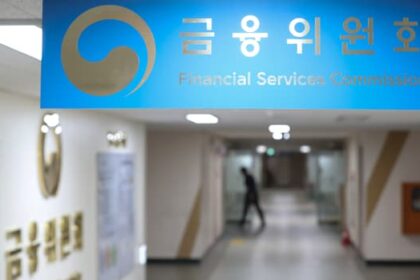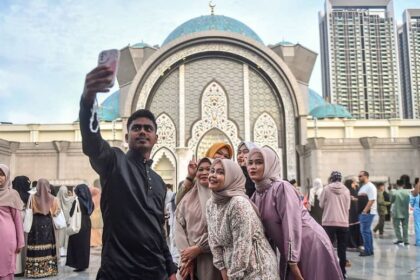South Korea’s Early Education Crisis: Why Preschool Entrance Exams Are Under Fire
In South Korea, the race for academic achievement begins earlier than almost anywhere else in the world. In recent years, a growing number of private academies—known locally as hagwons—have introduced rigorous entrance exams for children as young as four and five. These so-called “seven-year-old exams” have become a flashpoint in the country’s ongoing debate over educational pressure, child development, and human rights.
- South Korea’s Early Education Crisis: Why Preschool Entrance Exams Are Under Fire
- What Are ‘Seven-Year-Old Exams’ and Why Are They Controversial?
- The Roots of South Korea’s Education Obsession
- Human Rights Watchdog Steps In: What Did the Commission Say?
- Inside the World of Preschool Cram Schools
- Calls for Reform: What Happens Next?
- In Summary
On August 25, South Korea’s National Human Rights Commission issued a rare policy opinion urging the Ministry of Education to address what it called “extreme forms of early private education.” The watchdog’s statement followed a petition signed by over 800 citizens demanding government action against the proliferation of preschool entrance exams. While the commission dismissed the petition on procedural grounds, it acknowledged the broader human rights concerns and called for systemic reforms.
What Are ‘Seven-Year-Old Exams’ and Why Are They Controversial?
The term “seven-year-old exams” refers to entrance tests administered by elite private academies to preschool-aged children. These assessments often cover subjects such as English, mathematics, and even coding—skills typically reserved for much older students. In Seoul’s affluent districts like Gangnam, Seocho, and Songpa, competition for spots in prestigious English immersion kindergartens is fierce. Parents spend thousands of dollars on preparatory classes, private tutors, and test guides, all in the hope of giving their children a head start.
According to a 2024 report by Representative Kang Kyung-sook and the civic group World Without Worrying About Private Education, more than 74% of kindergartens in these districts operate English immersion programs. Ten kindergartens were found to offer full elementary-level curricula to preschoolers, while only one institution actively rejected early academic learning in favor of play-based education.
This culture of early academic pressure is not limited to Seoul’s wealthiest neighborhoods. The number of private English-language preschools nationwide has surged by 37% in five years, while enrollment in general kindergartens has declined. The trend is spreading to other cities, intensifying the competition for academic advancement from an ever-younger age.
How Do These Exams Affect Children?
Child development experts warn that excessive early academic pressure can have serious consequences. Young children subjected to intensive study schedules and high-stakes testing may experience emotional stress, anxiety, irritability, and even physical symptoms such as hair loss. Social-emotional skills—like cooperation, self-regulation, and empathy—are critical at this stage of development, yet are often neglected in favor of rote memorization and test preparation.
“Children are forced to memorize English sentences and undergo interview drills for the sake of academy admissions,” said a spokesperson for the National Accusers Against 7-Year-Old Cram Exams, a coalition that filed a human rights complaint earlier this year. The group described the trend as a violation of children’s rights and called for a nationwide investigation into shadow education at the preschool and early elementary levels.
Data from Seoul’s education districts show a doubling in the number of children diagnosed with depression or anxiety over the past five years. Mental health professionals report a rise in tic disorders and other stress-related conditions among young children, attributing much of this to the relentless academic pressure that begins before elementary school.
The Roots of South Korea’s Education Obsession
To understand why preschool entrance exams have become so prevalent, it is important to consider the broader context of South Korea’s education system. Education is seen as the primary pathway to social mobility and economic security. Admission to one of the country’s top universities—collectively known as the “SKY” universities (Seoul National, Korea, and Yonsei)—is widely regarded as a ticket to success. This belief has fueled a culture of intense competition, with families investing heavily in private education from an early age.
The origins of this pressure can be traced back to the Joseon Dynasty, when noble children began rigorous study at a young age to prepare for the civil service exam. Today, the stakes are arguably even higher. In neighborhoods like Daechi-dong, often called the “epicenter” of private education, parents enroll children in preparatory programs as early as age three. The most elite kindergartens require passing giftedness tests and English interviews, with monthly fees exceeding $1,000 and additional expenses for uniforms and materials.
Despite the availability of free public kindergartens, many parents feel compelled to pursue the private route to give their children a perceived competitive edge. The drive for early advancement extends beyond English: it is common for third graders to study sixth-grade math, and some fifth graders tackle calculus. This mentality of “studying years ahead” is deeply ingrained, all aimed at gaining entry to elite universities and, eventually, prestigious jobs at conglomerates like Samsung.
How Does This Compare Globally?
South Korea’s education system is renowned for its high academic performance, but it is also criticized for the intense pressure it places on students. Nearly half of Korean children under the age of six participate in private education, according to international reports. The system is so competitive that even preschool entrance exams can be as challenging as university-level tests.
International observers have expressed concern about the psychological and financial toll of this education-obsessed culture. Joanne Williams, a professor emerita at the University of California, reacted to South Korea’s record-low fertility rate by exclaiming, “Korea is completely doomed,” highlighting the link between educational pressure and the country’s demographic crisis.
Human Rights Watchdog Steps In: What Did the Commission Say?
The National Human Rights Commission’s intervention marks a significant moment in the debate over early education in South Korea. In its policy opinion, the commission stated that extreme early education practices “may violate children’s rights to health, development, rest and play, as guaranteed by the Constitution and the UN Convention on the Rights of the Child.”
The commission emphasized that these early education practices, driven by excessive competition, deprive young children of their right to age-appropriate experiences, such as play, self-expression and rest.
Although the commission dismissed the petition on procedural grounds—citing that private academies fall outside its direct investigative authority—it recommended several key measures:
- A nationwide survey of early childhood private education
- Mandatory disclosure of the findings
- Stricter regulation of testing-based programs and intensive foreign language instruction targeting young children
“These practices clearly undermine children’s rights,” the commission said, calling for “systemic safeguards to ensure that all children can grow and learn in developmentally appropriate environments.”
What Are the Broader Implications?
The commission’s recommendations reflect a growing consensus among child development experts: without targeted regulation and accurate monitoring of the early childhood education sector, Korea’s youngest learners may be paying the price for an achievement-at-all-costs culture. The psychological and financial burdens placed on families are contributing to the country’s plummeting birthrate—the lowest in the world—and raising questions about the sustainability of the current system.
Parents, meanwhile, find themselves caught in a dilemma. Opting out of the race can leave children at a disadvantage, but participating often means sacrificing their well-being. As one parent in Daechi-dong explained, “If you don’t join in, your child falls behind. But if you do, you worry about their happiness and health.”
Inside the World of Preschool Cram Schools
In Seoul’s Daechi-dong, the pressure to succeed starts as early as age four. Children attend academies that prepare them for English-language kindergarten entrance exams, learning to identify letters, respond in English, and practice classroom behavior. Classes begin at 30 minutes and gradually extend to an hour as children adjust. Parents spend hundreds of dollars on tutors and exam guides, and some even hire people to hold places in line for kindergarten enrollment.
Tuition for these programs can exceed 2 million won (about $1,500) per month, with additional spending on private tutoring and extra academies to keep up with the demanding curriculum. Some parents even use English names at home to reinforce language immersion, though this can lead to children struggling with basic Korean words.
For many, early English education is about removing future obstacles, allowing children to focus on advanced subjects like math in elementary school. The drive for early advancement is so strong that some children are taught using third- or fourth-grade American elementary school curricula. The culmination of this early pressure is the “Seven-Year-Old Gosi,” a highly competitive entrance exam for elite after-school English academies.
The Mental Health Toll
Academic pressure is an open secret in South Korea, and childhood stress is now a well-documented crisis. Data shows that the number of children diagnosed with depression or anxiety in Seoul’s education districts has doubled in five years. Mental health professionals warn that the relentless pursuit of academic achievement is taking a toll on children’s happiness and well-being.
“The growing consensus among child development experts is clear: without targeted regulation and accurate monitoring of the early childhood education sector, Korea’s youngest learners may be paying the price for an achievement-at-all-costs culture.”
Calls for Reform: What Happens Next?
The National Human Rights Commission’s recommendations have reignited the debate over early education in South Korea. Advocates are calling for stricter regulation of private academies, greater transparency in early childhood education, and a renewed focus on play-based learning. Some experts suggest that the government should introduce free, public pre-primary education to reduce reliance on private providers and level the playing field for all children.
International comparisons highlight the importance of early childhood education for cognitive and social development, future educational attainment, and economic opportunities. However, the South Korean model—characterized by high private spending, intense competition, and early academic pressure—stands in stark contrast to systems that prioritize play, creativity, and emotional well-being.
As the country grapples with the consequences of its education-obsessed culture, the question remains: can South Korea strike a balance between academic excellence and the rights and well-being of its youngest citizens?
In Summary
- South Korea’s human rights watchdog has called for action against extreme early education practices, including preschool entrance exams.
- “Seven-year-old exams” are high-stakes tests for young children seeking admission to elite private academies, especially in affluent Seoul districts.
- Experts warn that excessive academic pressure harms children’s emotional and physical health, contributing to rising mental health issues.
- The culture of early academic competition is deeply rooted in South Korea’s education system and societal values.
- The National Human Rights Commission recommends a nationwide survey, greater transparency, and stricter regulation of early childhood education.
- Parents face difficult choices, balancing the desire for academic success with concerns about their children’s well-being.
- The debate continues over how to reform South Korea’s early education system to better protect children’s rights and development.


